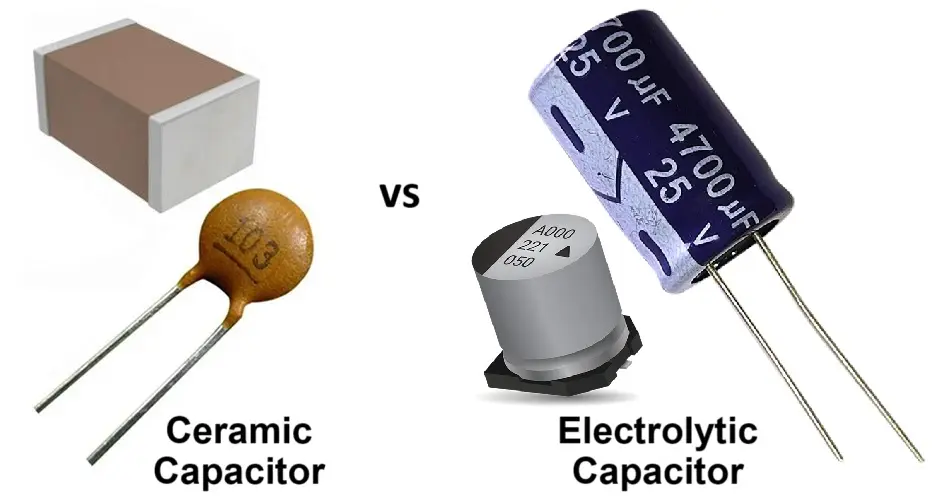Maintaining a conformal coating machine is essential for ensuring consistent, high-quality results, whether you're a hobbyist working on DIY projects or a professional handling large-scale production. Regular maintenance prevents downtime, extends the machine’s lifespan, and guarantees that your electronic components are properly protected from moisture, dust, and other environmental hazards. In this comprehensive guide, we’ll explore practical tips and best practices for conformal coating machine care, including quick tips for hobbyists and detailed strategies for professionals seeking optimal machinery performance.
What Is a Conformal Coating Machine and Why Does Maintenance Matter?
A conformal coating machine applies a thin, protective layer of material, such as acrylic, silicone, or urethane, to printed circuit boards (PCBs) and electronic assemblies. This layer shields components from harsh conditions like humidity, chemicals, and temperature extremes, ensuring reliability and longevity. However, without proper maintenance, these machines can develop issues like uneven coating, clogging, or mechanical failures, leading to costly repairs and defective products.
Maintenance is not just about fixing problems; it’s about preventing them. A well-maintained machine operates efficiently, reduces material waste, and delivers consistent coating thickness—often in the range of 25 to 75 micrometers for most applications. Whether you're a hobbyist doing DIY coating or managing a production line, following best practices for machinery care can save time, money, and frustration.
Key Components of a Conformal Coating Machine to Maintain
Before diving into maintenance tips, it’s helpful to understand the critical parts of a conformal coating machine that require regular attention. These components vary slightly depending on whether you’re using a manual spray system, a selective robotic applicator, or a dip coating setup, but the core elements are similar:
- Nozzles and Spray Heads: These deliver the coating material. Clogging or wear can lead to uneven application.
- Pumps and Valves: Responsible for material flow. Blockages or leaks can disrupt the process.
- Filters: Prevent contaminants from entering the system, ensuring clean coating material.
- Conveyor Systems (for automated machines): Move PCBs through the coating process. Misalignment can cause improper coverage.
- Control Systems: Manage settings like spray pressure (often between 20-50 psi for atomized spray guns) and coating thickness. Malfunctions can throw off precision.
By focusing on these areas, you can address most maintenance needs effectively.
Essential Maintenance Tips for Conformal Coating Machines
1. Regular Cleaning to Prevent Clogging
One of the most common issues with conformal coating machines is clogging, especially in nozzles and pumps. Residual coating material can harden over time, particularly with fast-curing compounds like UV-curable coatings, which can solidify in under 30 seconds under UV light. To avoid this, clean the machine after every use or at least daily for high-volume operations.
Use a compatible solvent recommended by the machine manufacturer to flush the system. For hobbyists doing DIY coating with smaller setups, a simple rinse with isopropyl alcohol may suffice for some water-based or solvent-based coatings. Always wear protective gloves and ensure proper ventilation when handling chemicals. Pay special attention to spray heads, as even a small blockage can cause uneven coverage, leading to weak spots on the PCB.
Quick Tip for Hobbyists: Keep a small brush or compressed air canister handy to clear debris from nozzles between sessions. This takes just a few minutes and prevents buildup.
2. Inspect and Replace Filters Frequently
Filters in conformal coating machines trap dust, debris, and contaminants that could compromise the coating quality. A clogged filter can reduce material flow, causing inconsistent application or increased pressure on the pump, which may lead to breakdowns. Check filters weekly, or more often in dusty environments, and replace them as needed—typically every 1-3 months depending on usage.
For professionals, maintaining a log of filter replacement dates helps track performance and predict when replacements are due. Hobbyists can set a simple calendar reminder to inspect filters monthly to avoid oversight.
3. Calibrate Settings for Consistent Performance
Conformal coating machines rely on precise settings for spray pressure, material viscosity, and conveyor speed (in automated systems). Over time, these settings can drift due to wear or environmental factors like temperature changes. For example, a spray pressure deviation of just 5 psi can alter coating thickness, potentially leaving areas underprotected (below 25 micrometers) or overcoated (above 100 micrometers), which may cause cracking.
Recalibrate your machine at least monthly or after any major maintenance. Use a test board to check coating uniformity and measure thickness with a micrometer if possible. Many modern machines have built-in diagnostics to assist with calibration, but even manual systems can be adjusted with careful trial runs.
4. Lubricate Moving Parts to Reduce Wear
Automated conformal coating machines often have moving parts like conveyor belts, robotic arms, or pump mechanisms that require lubrication to function smoothly. Lack of lubrication can cause friction, leading to overheating or mechanical failure. Refer to the machine’s manual for the recommended lubricant type and application frequency—typically every 3-6 months for moderate use.
For hobbyist coating setups with simpler tools like handheld spray guns, ensure that any adjustable joints or triggers move freely without sticking. A small amount of silicone-based lubricant can work wonders for manual tools, but avoid over-applying, as excess lubricant can attract dust.
5. Store Materials and Equipment Properly
The coating material itself can impact machine performance if not stored correctly. Many conformal coatings are sensitive to temperature and humidity, with ideal storage conditions often between 5°C and 25°C (41°F to 77°F) and below 50% humidity. Exposure to extreme conditions can alter viscosity, making the material harder to apply evenly.
Additionally, store the machine in a clean, dry area when not in use. Dust accumulation on sensitive components like control panels or nozzles can lead to malfunctions. For hobbyists with limited space, even covering the machine with a dust cover can provide adequate protection.
Best Practices for Conformal Coating Machinery Care
1. Develop a Maintenance Schedule
Consistency is key to preventing unexpected issues. Create a maintenance schedule tailored to your usage level. For professionals running daily operations, a weekly checklist might include cleaning nozzles, inspecting filters, and checking calibration. Monthly tasks could involve deeper cleaning of pumps and lubrication of moving parts.
Hobbyists working on occasional DIY coating projects can adopt a simpler routine, such as cleaning after every use and doing a full inspection every 3-6 months. Keeping a log of maintenance activities helps identify patterns, like recurring clogs, that might indicate a deeper issue with material choice or machine setup.
2. Train Users on Proper Operation
Human error is a leading cause of machine damage. Ensure that everyone using the conformal coating machine understands the correct procedures for setup, operation, and shutdown. For example, failing to purge the system after use can leave material to harden inside, causing blockages. Professionals should provide formal training for staff, while hobbyists can review the user manual thoroughly before starting any project.
3. Monitor Environmental Conditions
The workspace environment plays a big role in machine performance. High humidity can cause moisture to mix with coating materials, leading to defects like bubbling or poor adhesion. Aim to keep the coating area at a stable temperature (around 20-25°C or 68-77°F) and humidity below 60%. For larger setups, consider investing in a controlled environment or dehumidifier to maintain ideal conditions.
4. Use High-Quality Coating Materials
Low-quality or incompatible coating materials can damage the machine and produce subpar results. Always use materials that match the machine’s specifications and are suited for your application. For instance, silicone coatings are ideal for high-temperature environments (up to 200°C), while acrylics work well for general-purpose protection. Check the material’s viscosity range—typically 100-1000 centipoise for spray applications—to ensure it flows properly through the system.
5. Address Issues Promptly
Don’t ignore small problems, as they can escalate quickly. If you notice uneven coating, strange noises, or reduced material flow, stop and troubleshoot immediately. For professionals, having spare parts like nozzles or filters on hand can minimize downtime. Hobbyists can often resolve minor issues by consulting online resources or the machine manual, but don’t hesitate to contact technical support for complex problems.
Quick Tips for Hobbyist Coating and DIY Projects
If you’re a hobbyist working on small-scale or DIY coating projects, you might not have the resources or time for extensive maintenance routines. Here are some quick tips to keep your equipment in good shape without overwhelming effort:
- Clean Immediately After Use: Spend 5-10 minutes rinsing nozzles and wiping down surfaces to prevent material buildup.
- Use Small Batches of Material: Mix only what you need for a single session to avoid waste and reduce the risk of material hardening in the machine.
- Store Tools Safely: Keep handheld sprayers or brushes in a sealed container to protect them from dust and debris.
- Test on Scrap First: Before coating a valuable PCB, test your machine on a scrap board to ensure the spray pattern and thickness are correct.
- Keep a Simple Log: Note down when you last cleaned or noticed issues with the machine. This helps track maintenance needs over time.
Troubleshooting Common Conformal Coating Machine Issues
Even with the best maintenance practices, issues can arise. Here are some common problems and how to address them:
- Uneven Coating: Often caused by clogged nozzles or incorrect spray pressure. Clean the nozzle and recalibrate settings to match the material viscosity.
- Material Not Flowing: Check for blockages in pumps or valves. Flush the system with solvent and inspect filters for clogs.
- Excessive Overspray: Adjust the air-to-material ratio on spray guns (aim for a 3:1 ratio for most atomized systems) and ensure proper ventilation to avoid cobwebbing.
- Mechanical Noise: Indicates wear on moving parts. Lubricate components and inspect for loose or damaged parts.
Benefits of Proper Conformal Coating Machine Maintenance
Investing time in maintenance yields significant rewards. A well-maintained machine ensures consistent coating quality, reducing the risk of PCB failures due to environmental damage. It also lowers operational costs by minimizing material waste and preventing expensive repairs. For professionals, this translates to higher productivity and customer satisfaction. For hobbyists, it means fewer frustrations and better results on DIY coating projects.
Moreover, regular care extends the lifespan of your equipment. A machine that might last 5 years with neglect could serve reliably for 10-15 years with proper attention, saving you from premature replacement costs.
Conclusion: Prioritize Maintenance for Long-Term Success
Conformal coating machines are invaluable tools for protecting electronics, but their performance hinges on regular maintenance and adherence to best practices. By cleaning components, calibrating settings, and monitoring environmental conditions, you can avoid common issues and ensure consistent, high-quality results. Whether you’re a hobbyist experimenting with DIY coating or a professional managing a production line, these tips and strategies will help you get the most out of your machinery.
Start small by incorporating one or two of these maintenance habits into your routine, then build up to a comprehensive schedule. With the right care, your conformal coating machine will remain a reliable partner in safeguarding your electronic projects for years to come.
 ALLPCB
ALLPCB







